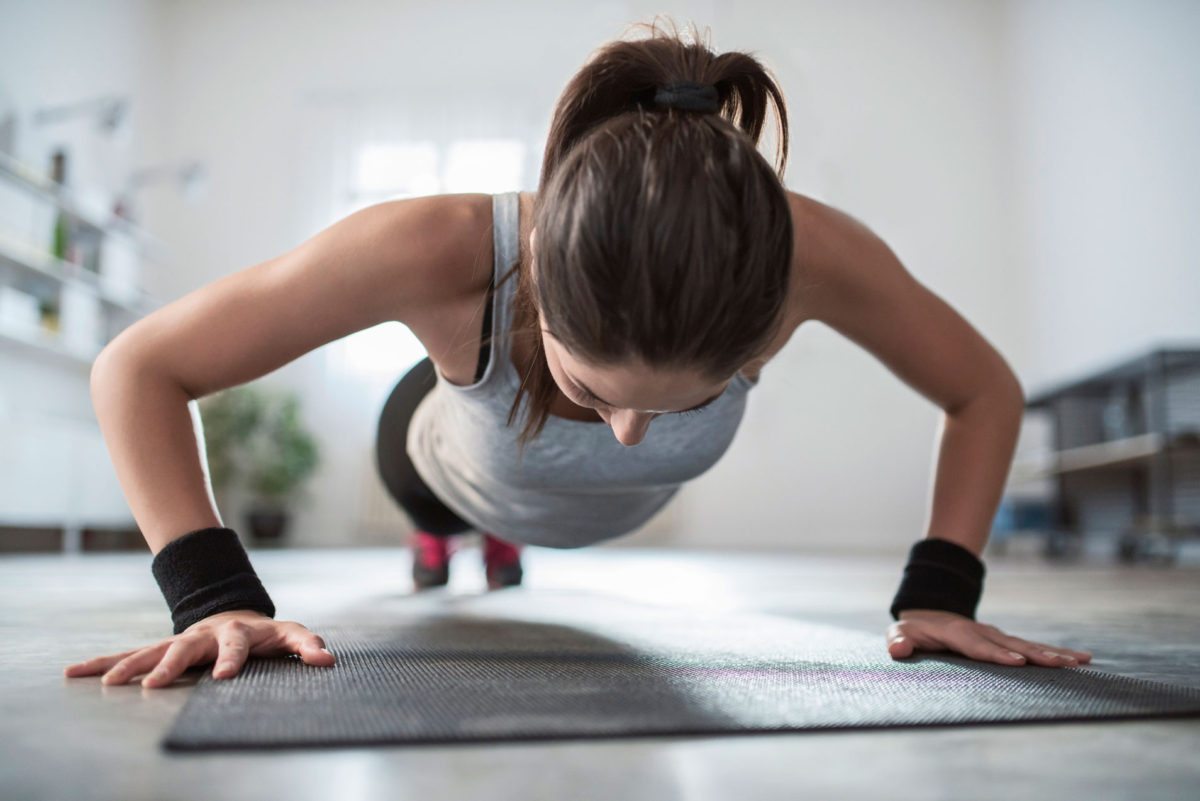
We all know that exercise is good for the body and the mind. But if you’re not careful, getting in shape may have negative consequences for your hearing.
Fitness programs that are designed to push the body to its limit and have a high degree of intensity, such as CrossFit or other “boot camp” style programs that combine weightlifting, cardio, core training and more can deliver results in the form of peak physical fitness. But for some gym goers, the intense training can result in hearing loss.
What does exercise have to do with your ears?
To understand how exercise can impact your ears, let’s look at two common practices that can occur when a person is lifting weights. The first of these is straining. Straining causes intracranial pressure (pressure within the brain) which in turn leads to pressure within the ears. The next is hold your breath, which some claim gives them an extra boost while lifting by solidifying the core and supporting the spine. However, what happens when you hold your breath? More pressure in the inner ear.
The pressure in the inner ear can lead to changes in hearing during or after intense exercise as a result of a perilymphatic fistula, or PLF, which occurs unexpectedly and which most people aren’t aware of right away. Simply put, a PLF is a small tear or defect in the thin membrane between the inner ear and the middle ear. The tear itself can be caused by the pressure in the inner ear due to straining; hearing changes occur when the strain of subsequent workouts causes fluid from the inner ear to leak through the tear and into the middle ear.
Watch the volume
Gyms and fitness studios are often noisy places. To get participants motivated for such intense workouts, the music is often very loud, sometimes well over 90-100 decibels (dB). Fitness enthusiasts who push themselves to the absolute limits need to be mindful of the risks to their hearing.
 When you combine loud music with noise coming from a class or stationary bikes, elliptical trainers and treadmills plus the clanging of heavy weights, you have the perfect recipe for irreversible noise-induced hearing loss or tinnitus.
When you combine loud music with noise coming from a class or stationary bikes, elliptical trainers and treadmills plus the clanging of heavy weights, you have the perfect recipe for irreversible noise-induced hearing loss or tinnitus.
“I never actually took a sound level meter to the smashing of weights in a weight room, but it is likely that even short durations of loud intense weights dropping, can have the same potential damage to hearing as a shotgun blast or an air bag deploying,” said Rachel Raphael, M.A., CCC-A, an audiologist with Mercy Medical Center in Baltimore and a certified group fitness instructor. “If in fact, the smashing weights are in this range for volume, it wouldn’t take much for the person at close range to suffer permanent damage, in the way of high-frequency sensorineural hearing loss and/or tinnitus as a symptom secondary to the damage in the cochlea.”
Simple tips to protect your hearing during exercise
No matter what form of exercise you choose, here are some tips to ensure you are taking care of your hearing while working out.
- Don’t hold your breath during strength training, as holding your breath increases the pressure within the ears.
- If you are straining when lifting, reduce the weight you’re lifting to help prevent a PLF from occurring.
- Don’t bang or drop weights when lifting – the noise can reach a level as high as 140 decibels, which is like being exposed to a gunshot or explosion.
- Protect your hearing in an exercise class or while working out in the gym by wearing earplugs to safeguard against loud music or keep headphones at a reasonable volume to avoid noise-induced hearing loss.
- Don’t ignore symptoms of hearing loss – get a hearing check immediately if you experience any ringing in your ears or muffled hearing after exercise.
 Exercise is a great way to get fit and healthy, just be aware of the dangers to your hearing health while working out. Contact us today if you or someone you know experiences feelings of fullness in the ears, muffled hearing, tinnitus or dizziness after intense exercise,
Exercise is a great way to get fit and healthy, just be aware of the dangers to your hearing health while working out. Contact us today if you or someone you know experiences feelings of fullness in the ears, muffled hearing, tinnitus or dizziness after intense exercise,
Source: Healthy Hearing
